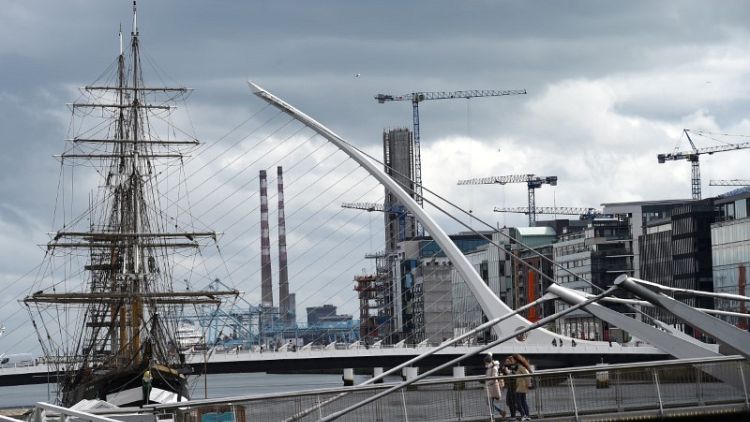DUBLIN (Reuters) - Ireland's lower VAT rate for tourism has become a "significant deadweight" on the economy and increasing it now will have no real adverse impact on the tourism sector, the finance department said on Tuesday.
A cut in sales tax for hotels, restaurants and other tourist businesses to 9 percent from 13.5 percent in 2011 helped lift a sector that was reeling from Ireland's financial crisis but is now benefiting from record visitor numbers and higher prices.
Finance Minister Paschal Donohoe said last year that he would decide the fate of the lower rate when a clearer picture of the impact of Britain's break with the European Union on the tourist sector emerged following a "very fine judgment call" to retain it for 2018.
Irish tourism grew by 6.7 percent in the first half of the year with the number of trips to Ireland from Britain returning to growth to partly reverse a fall last year as the weak pound made trips to the euro zone more expensive.
In a review of the rate published as part of preparations for October's budget for 2019, the finance department said the tourist board's diversification strategy away from the British market had mitigated any loss of competitiveness relative to British tourists and that this was likely to continue.
"The economic environment in which the 9 percent VAT rate operates has changed considerably since its introduction," the report said.
The rate is regressive and the accommodation and food services sector has seen the second highest average employment growth since it was brought in, it said.
"The consequence of this analysis is that the VAT rating applied to the tourism sector is less significant than may seem apparent."
The report said that at 490 million euros last year - over half the budgetary space currently available to Donohoe for yet to be allocated tax cuts and spending increases next year - the cumulative costs of the reduced rate are substantial and "point to significant deadweight".
It added that the government's commitment to retain the rate was conditional on prices remaining competitive. This was no longer the case and had led to a competitiveness problem that could add to overheating pressures in the economy.
While the taxation papers published by the department each year can only lay out options for the budget, its advice to consider hiking the rate of stamp duty on commercial property was implemented in full by Donohoe last year.
(Reporting by Padraic Halpin; Editing by Richard Balmforth)



